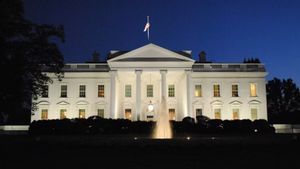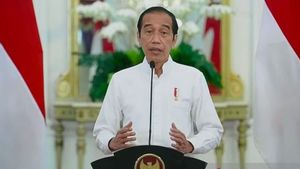
JAKARTA – Currently, cryptocurrencies are starting to steal a lot of people's attention. Not only that, many institutions such as the government have also begun to look at and apply their own rules for cryptocurrencies and digital assets in accordance with the laws of their country. Recently, one of the countries, Russia, implemented a new rule if digital assets will be taxed.
Russian lawmakers have approved amendments that regulate the taxation of transactions using digital assets. The law covers businesses operating with cryptocurrencies and digital tokens. In some cases, this regulation will reduce the burden on Russian companies compared to foreign companies.
According to Bitcoin News, the Russian Duma assembly passed a bill amending the Tax Code of the Russian Federation that allows authorities in Moscow to tax operations or businesses with digital financial assets (DFA). The bill was approved at its second, third and final reading in the State Duma, a lower-level assembly of the Russian parliament.
The law explains various aspects of cryptocurrency taxation, as DFA or digital assets is currently the main term of focus in Russian law. The new law “On Digital Currencies” needs to expand the legal framework and definition for crypto assets this fall.
According to the document, quoted from Forklog, platform services that issue, control and keep records of the movement of DFA or digital assets will be exempt from the scope of value added tax (VAT), as will securities. When exercising digital rights, a legal term that includes security and utility tokens, tax will be determined as the difference between the sale and acquisition price of each existing digital right.
Russian legal entities that own digital tokens will pay 13% of their total revenue. Meanwhile, companies based abroad will be charged a higher tariff of 15%. The new tax provisions provide a slight advantage for local businesses.
The law was originally submitted to the State Duma in mid-April and passed with its first reading the following month. It was approved by the parliamentary financial markets and new legislation committee. At the time, legal experts noted that the tax rules did not apply to private crypto ownership.
Russian officials have worked comprehensively to regulate the crypto space in the country. The adoption of this digital currency law, proposed by the Ministry of Finance in February, has been delayed by ongoing discussions about the future legal status of decentralized cryptocurrencies such as bitcoin.
Russia continues to work on legalizing digital assets and cryptocurrencies. This shows that the crypto world is very influential and is important for the economic cycle of a country, especially Russia.
The English, Chinese, Japanese, Arabic, and French versions are automatically generated by the AI. So there may still be inaccuracies in translating, please always see Indonesian as our main language. (system supported by DigitalSiber.id)












